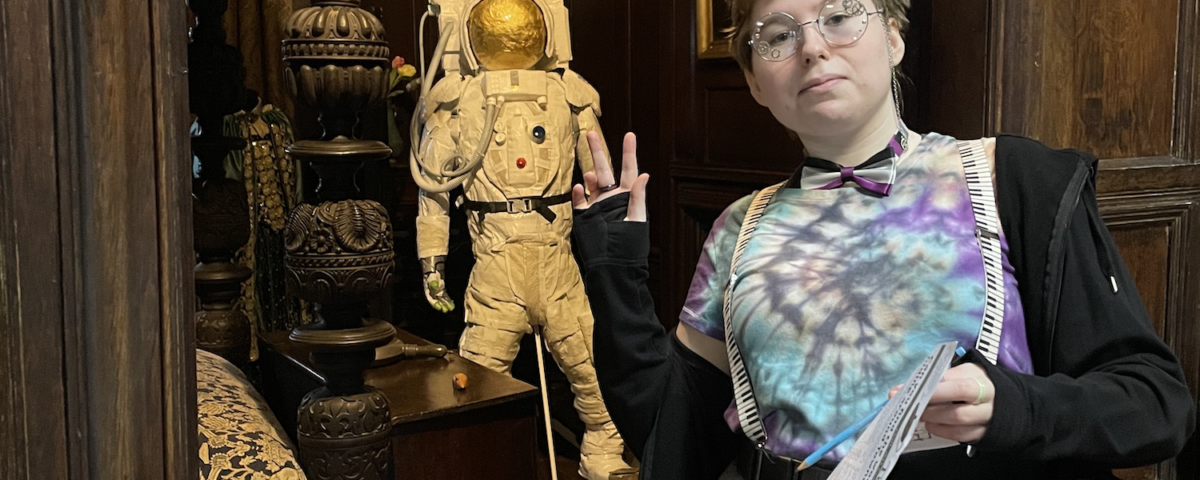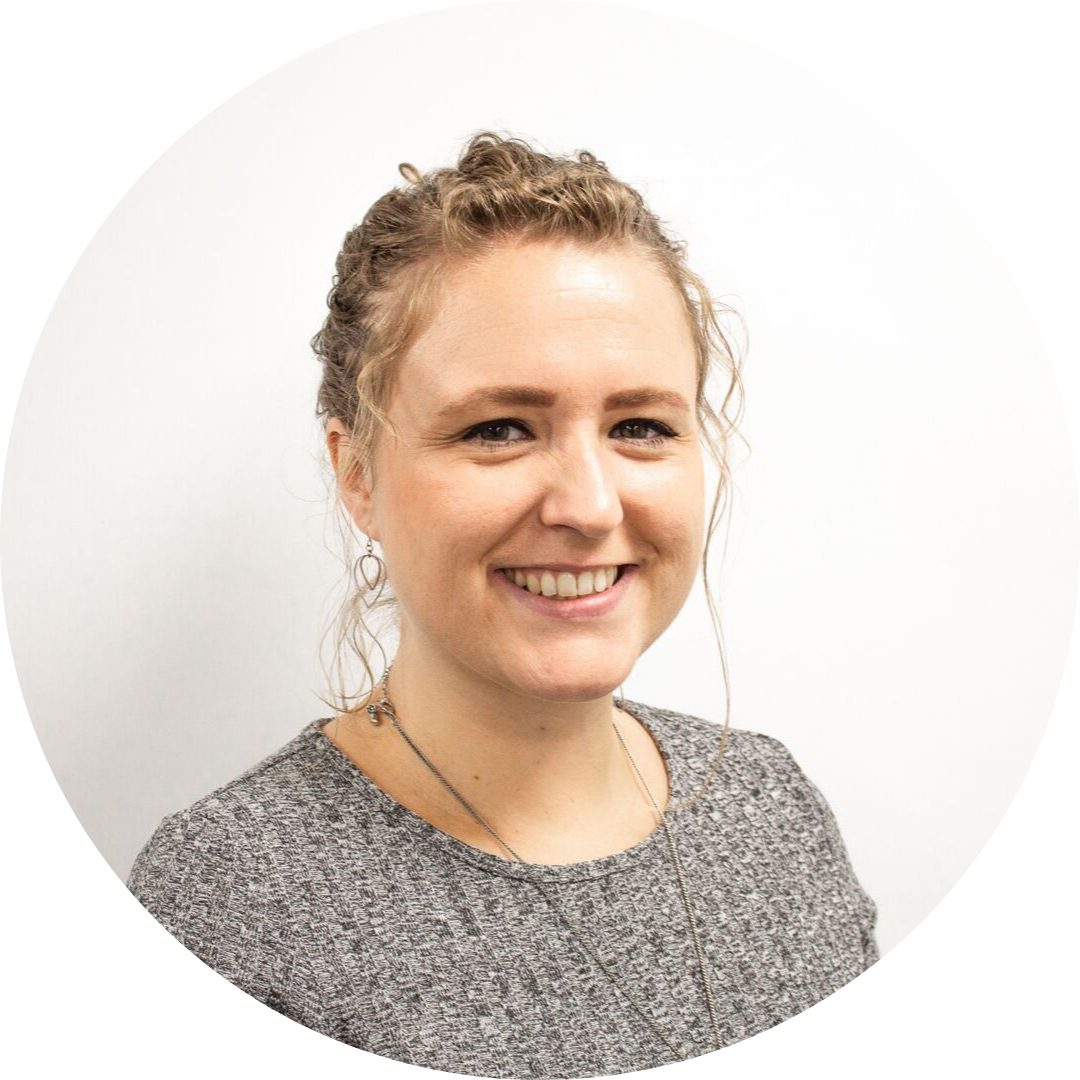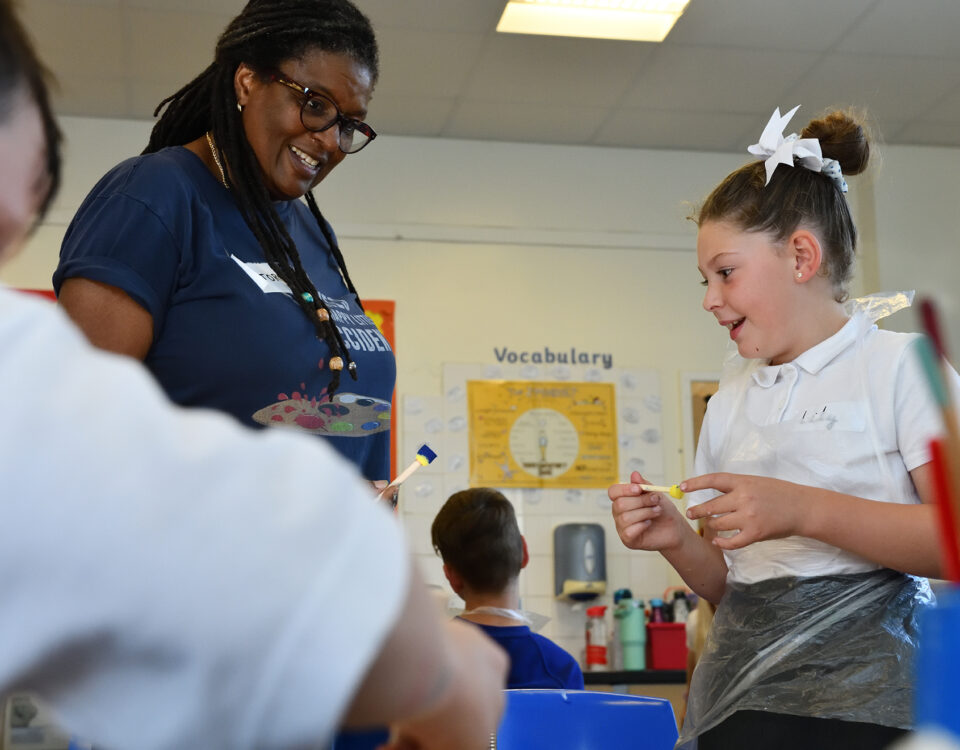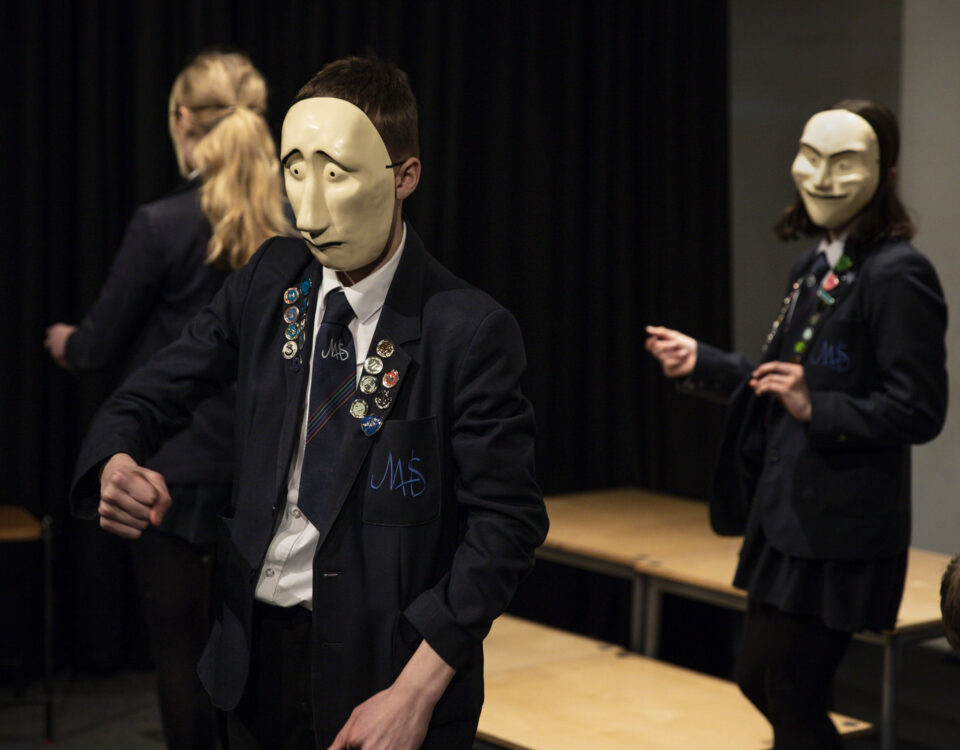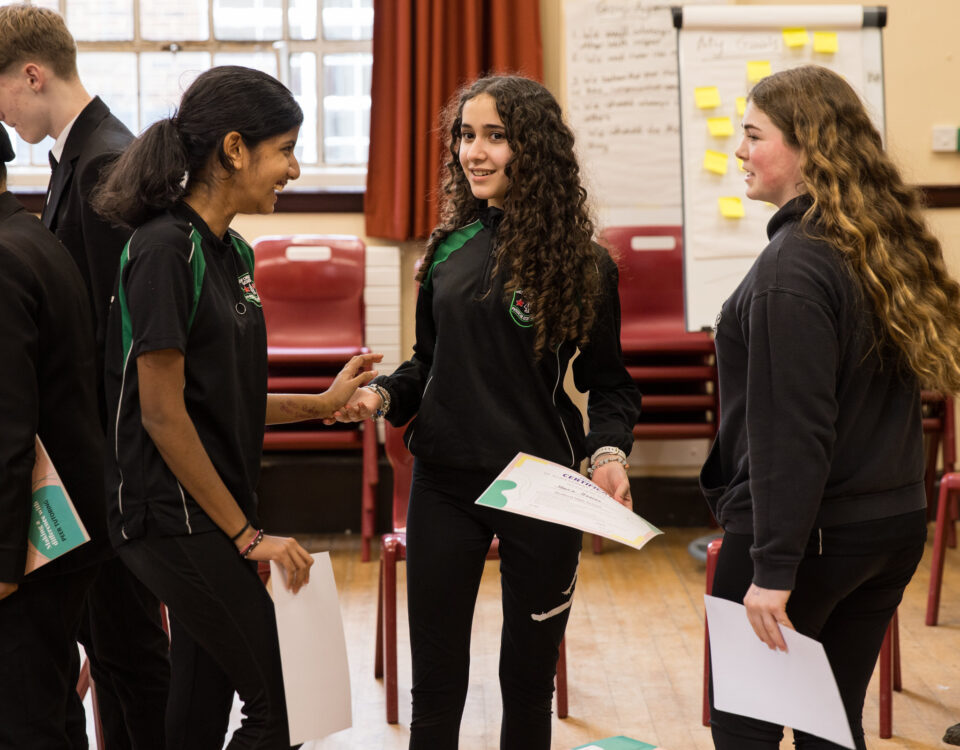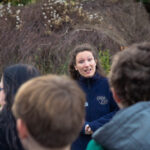
Exploring Inclusive Evaluation
July 13, 2023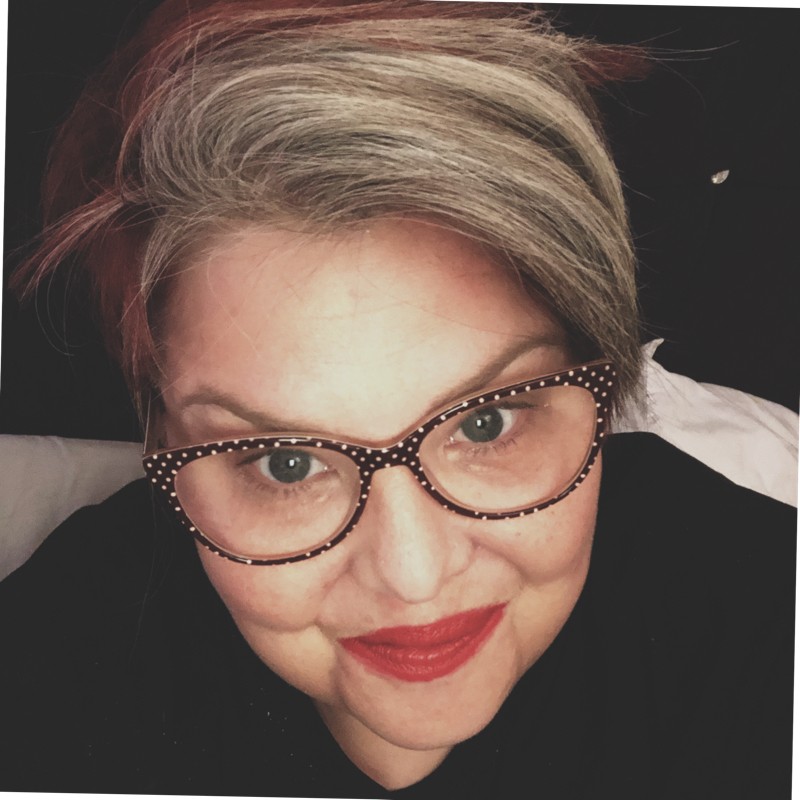
Remembering Eleanor Chapman
August 25, 2023How young people with Alternative Saturday Jobs can teach the cultural sector about access and inclusion
Alternative Saturday Jobs is an employment programme for young people, spearheaded by Holly Ball for Curious Minds.
Recognising that more support is needed for arts organisations to make themselves accessible for young people in challenging circumstances, this longstanding scheme (formerly called Trailbaze) provides paid work experience and mentoring for a young person who would otherwise experience barriers to work in the sector.
The aim for the most recent cycle of opportunities through this scheme was to explore a place-based approach to improving access and inclusion by drawing on the lived experience of local young people.
In four areas of the North West, a young person with lived experience of SEND/neurodivergence was recruited as an Access and Inclusion Champion and, with the support of a specialist mentor and their employer, would conduct an accessibility audit of arts and cultural venues in their area. These audits looked beyond the physical space, considering the whole package on offer from an organisation - not just a single participatory activity or the building itself.
In East Lancashire, Libby spent seven months working within the arts organisation In-Situ, supported throughout the process by Mentor, Sophie. While at times challenging, the placement was a valuable learning experience for all involved. The role was also supported in partnership with Mind the Gap.
In this interview we hear from Libby, Sophie and Paul from In Situ to understand how the Libby’s placement resulted in valuable learning and long-lasting impact.
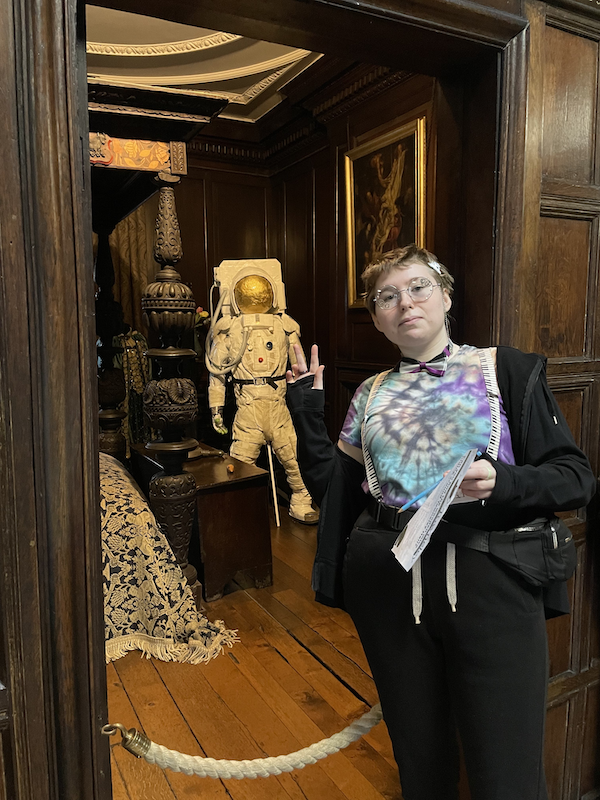
Libby, what was it like to apply?
Libby: I haven't had a job before that I got to figure out myself. I had to get the application together by myself. And I did the [whole] thing by myself with no experience and no one telling me what I'm supposed to do. Yeah, that was good. But school does not teach you how to do that.
Paul: Libby’s application was by video, which stood out because she’d taken the initiative to do it in a way that suited her.
Libby: And I had to go on and plan the dates myself, which isn't something I usually do. Often, it's more like [I’m told], "okay, here's the things, these things are happening". This, I'm just like, "no, I'm making the date with someone else". And I have to make sure that they work for both of us and all those little bits, I guess.
Sophie, you joined us part way through the placement as Libby’s mentor – what was this experience like for you and what did it involve?
Sophie: I was essentially employed to facilitate Libby’s role as they visited locations for auditing. My role included being their driver and a sounding board for Libby’s ideas.
I've learned so much about accessibility and inclusion, including about dyslexia fonts and website accessibility. I will apply loads of those things to my work now, so thank you very much. This was great professional development for me!
Libby: I know you've learned a lot of dumb facts from me. That's true.
Sophie: I've learned loads about neurodiversity as well. You told me loads about that, Libby. And how to communicate better - how to not step on the things you're saying. At one point [in an audit feedback session with an organisation], my first response was to sort it out and say things to make the conversation better. But actually, that was stressful for you because you felt like I was talking over you. So that was a real learning curve for me. I was like, "okay, actually you’re dealing with it" but I'd thought I was trying to help.
Paul, what was In-Situ’s learning from the placement?
Paul: I think as an organisation, we genuinely want to understand how we can be inclusive as employers. There's both a professional experience, but also there was so much to do to even enable you (Libby) to be able to do the job and feel confident with it. And, you know, I really wasn't prepared enough at points.
I have learned so much, finding a way through this process and working to create an experience for you. But those opportunities have had a huge impact on the organisation. I don't think we operate the same way anymore.
At the start we were trying to create what you’d probably call a 'traditional professional' work experience with you, in terms of you finding out about the organisation, meeting the team, having access to email, and all that. Actually those sorts of things weren’t necessary… they didn't work for you.
Libby: Week-to-week was a little bit intense for me, I guess. Yeah. Yeah.
Paul: And the idea of doing seven hours in one day as well. We realised it was too much, for just being able to feel comfortable and concentration levels. But we were flexible and managed to adapt as we went along.
I think the role of the mentor has been absolutely critical in this project. Just to recognise that, as an organisation, we didn't really have enough understanding and the capacity to do that aspect properly ourselves.
Bringing the learning together
When each of the Access and Inclusion Champions had concluded their audit, Curious Minds and our partners, Totally Inclusive People, facilitated a strategic conversation with the local partnership members. The aim was to share the learning from the audits right across the local partnership and to create a joined-up, place-based approach to improving access and inclusion which had been driven and informed by youth voice.Looking back on the discussions held with the partnerships, as well as with the our young Champions, we have been able to identify a number of reccurring points of improvement or themes that cultural organisations might consider when reveiwing their own working practices:
Comms & Marketing
- Sharing clear, descriptive information prior to a visit to help with expectations and decision making
- Using clear, non-stylised fonts
- Visual and audio guides to help people find and move around the building comfortably
Sensory Engagement
- Reducing unexpected and overload noises as part of exhibitions
- Ensuring ear defenders are available
- Sharing content/trigger warnings online as well as having them clearly visible before an exhibition
Accountability
- Accepting that responsibility must be shared across the entire organisation
- Holding regular focus groups with your audience to ensure their needs are met
- Stating aims and ambitions publicly
Engagement
- Using inclusive language and not 'labelling'
- Offering relaxed performances
- Providing a mechanism for families to share information about access requirements ahead of a visit
Employment
- Recognise that employing neurodiverse young people is a two-way learning process
- Offer communication via more relaxed platforms such as Discord or Whatsapp
- Commit to rolling out learning organisation-wide, rather than just in the recruitment of young people
Curious to learn more?
We hope that the learning from this programme has inspired you to take action within your own organisation or locality.As well as reflecting on our own findings, we are pleased to also share the audit tools we created to help evaluate access and move the conversation forward as part of this project. Whilst they were created for a specific purpose, you are welcome to adapt and use them to suit your own setting.
Could you offer a young person an Alternative Saturday job?
Alternative Saturday Jobs is an ongoing project which can work in all sizes of cultural organisation.If you are interested in offering a paid placement to a young person at the start of their career and have them add value to your organisation through their skills, please get in touch with Holly Ball.
Join the Curious Minds network and sign up to receive our email newsletters.

